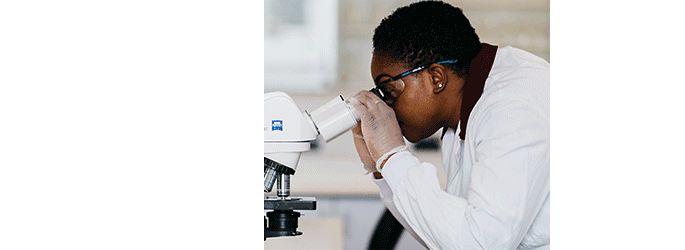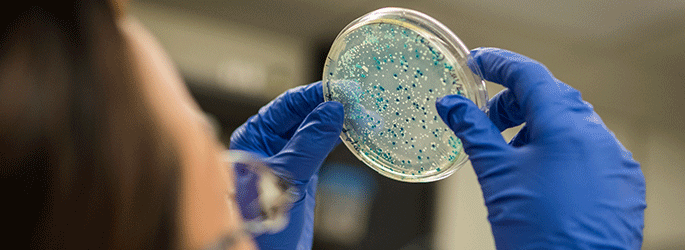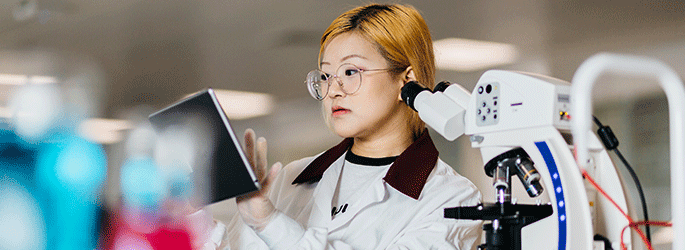
Blog

As an aspiring biomedical scientist you'll be interested in using science to develop knowledge, interventions, or technology that can be used in healthcare or public health to improve lives. But do you know about the range of careers you could pursue once you finish the course?
Take a look but remember, this is just a taste of the range of areas you could go into...
1. Biomedical scientist
As a biomedical scientist you would complete a variety of laboratory and scientific tests to support the diagnosis and treatment of disease in patients. It's a pretty important job considering operating theatres, accident and emergency (A&E) and many other hospital departments would not function without biomedical scientists!
More about being a biomedical scientist
2. Forensic scientist
Forensic scientists provide impartial scientific evidence for use in courts of law. The evidence you provide could support either the prosecution or defence in criminal and civil investigations. Your main activities will involve searching for and examining material associated with crimes including blood and other body fluids, hair, clothing fibres, fragments of paint and glass, tyre marks and substances used to start fires.
Find out about forensic science
3. Healthcare scientist (in areas such as clinical biochemistry, genomics, microbiology, haematology or immunology)
Careers in healthcare science are difficult to describe in one sentence. Many jobs are laboratory based and investigate disease, genetic make up, and new scientific treatments. Others might involve you working directly with patients, for example, measuring the function of a particular organ. The NHS employs graduates to become Senior Healthcare Scientist through their Scientist Training Programme (STP).

4. Microbiologist
As a microbiologist you would study microorganisms (microbes) to understand how they affect our lives and how we can use them to benefit our lives. Your focus would be on the biology of microorganisms at both the molecular and cellular level, as well as their ecology, including viruses, bacteria, archaea, fungi, algae and protozoa. Microbiology has applications not just in healthcare but also biotechnology, agriculture and the environment.
5. Physician associate
A physician associate's role is to support doctors in the diagnosis and management of their patients. You might work in a GP surgery or be hospital-based, but wherever you work, you'll have direct contact with patients so communication skills will be key. If you would prefer not to be lab-based all the time, this might be a career to consider.
Watch the NHS video about this new role

6. Research scientist (medical)
If you were to pursue a careers as medical research scientist you would devise and conduct experiments in order to increase the body of scientific knowledge on topics related to medicine. You would also develop new, or improve existing, drugs, treatments or other medically-related products.
Learn more about becoming a medical research scientist
7. Toxicologist
As a toxicologist, you'll look at the impact of toxic materials and radiation on the environment and human and animal health. You'll plan and carry out laboratory and field studies that help to identify, monitor and evaluate this impact and will also consider the use of future technology.
Learn more from the Society of Toxicology
8. Science writer
Science writers research, write and edit scientific news, articles and features. They write for business, trade and professional publications, specialist scientific and technical journals, and the general media. You'd need to understand complex scientific information, theories and practices as well as being able to write in clear, concise and accurate language that can be understood by the general public.